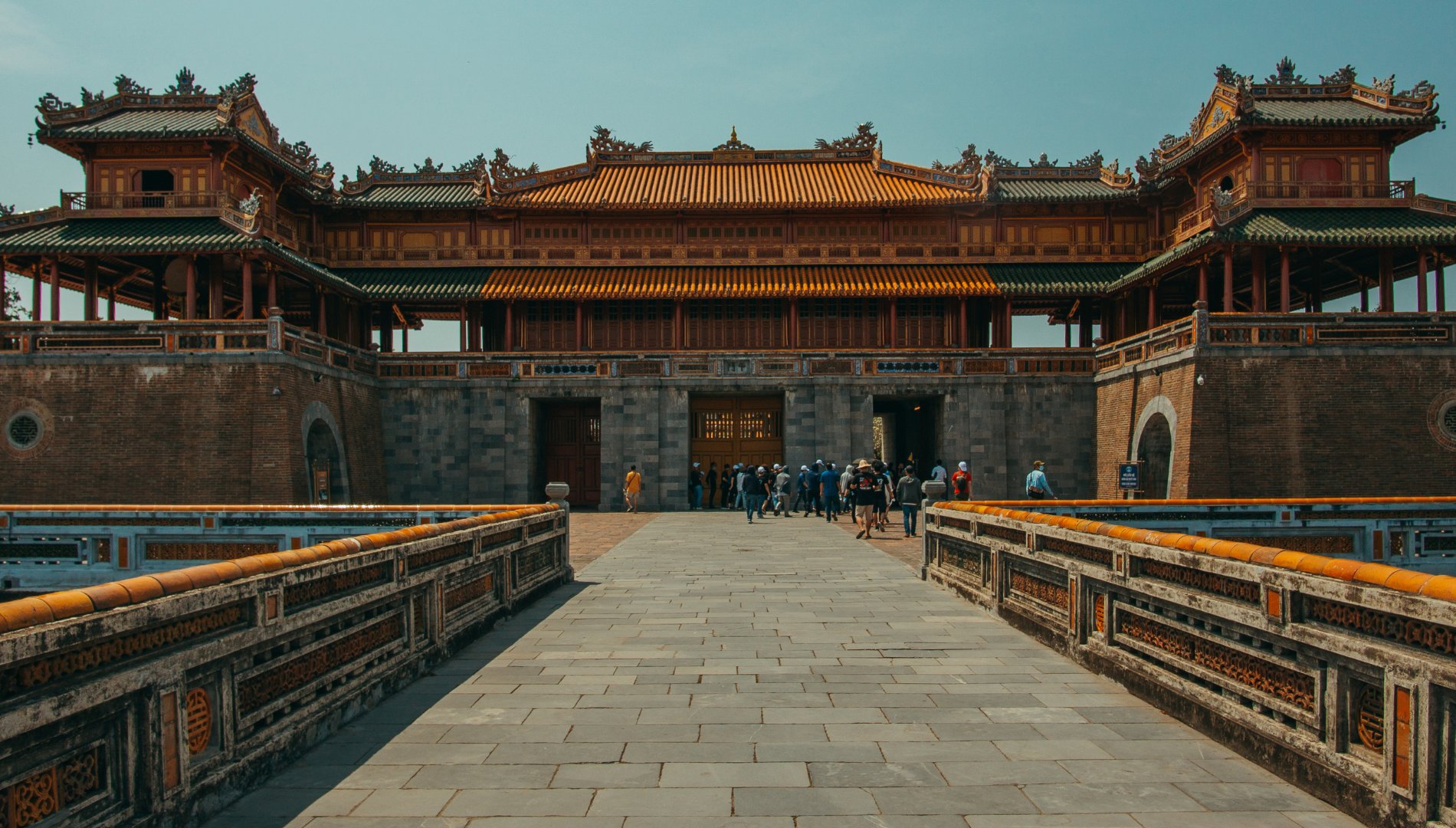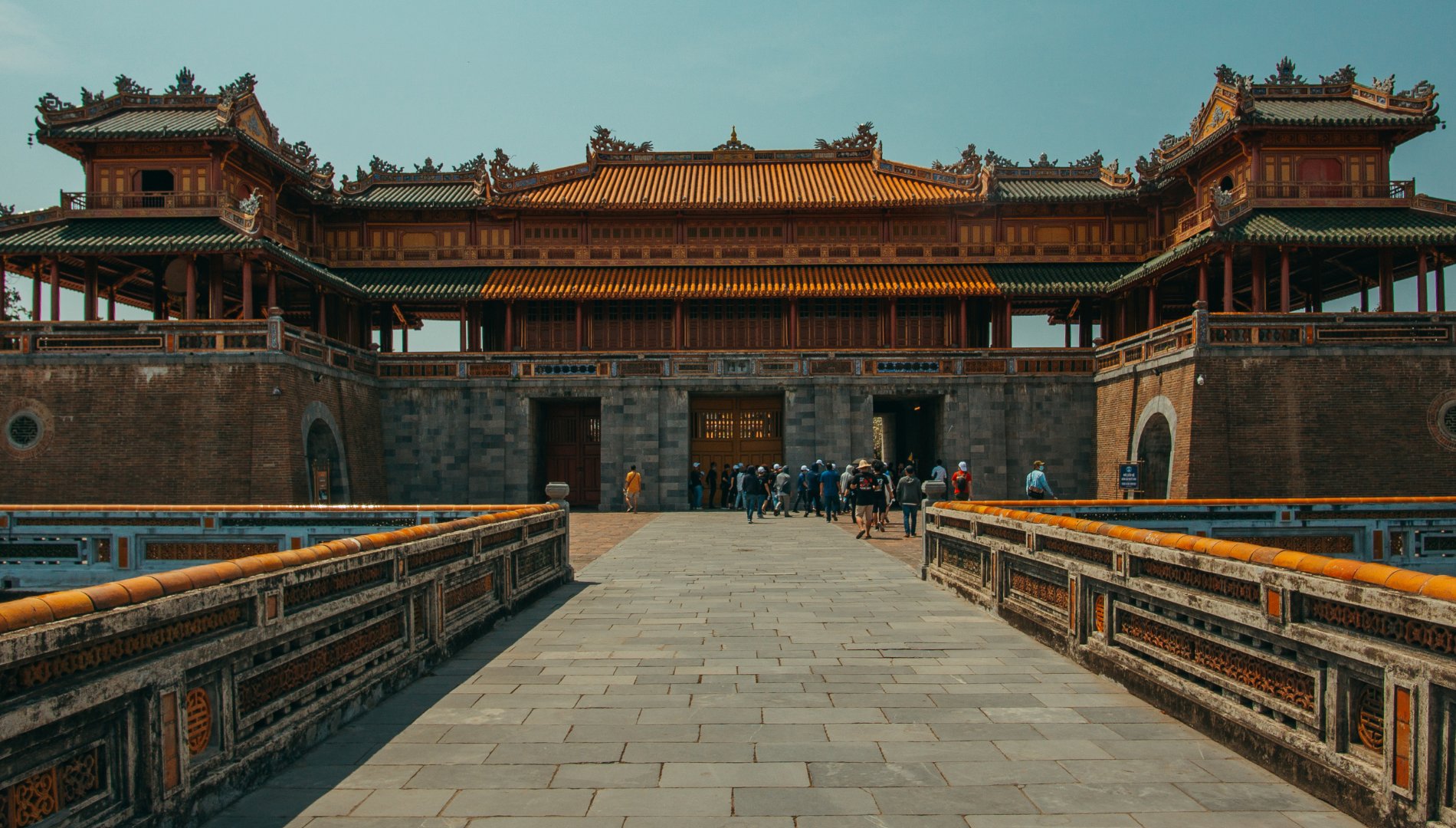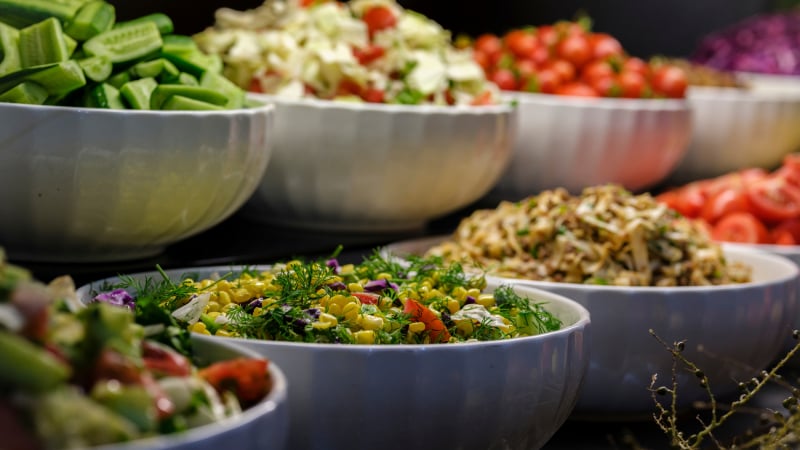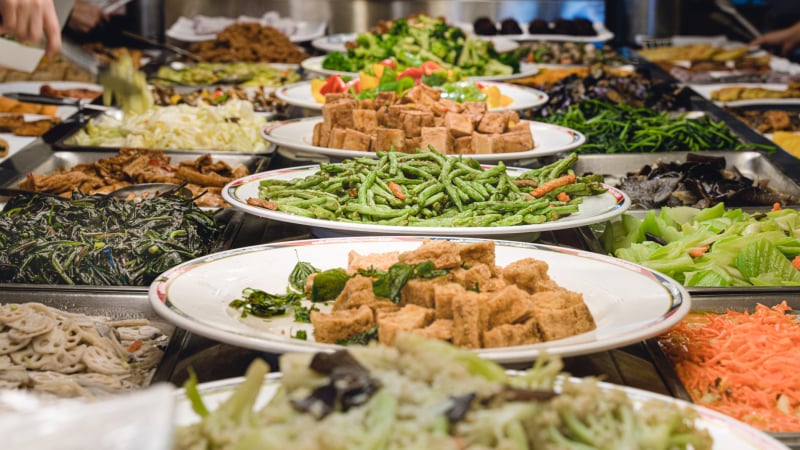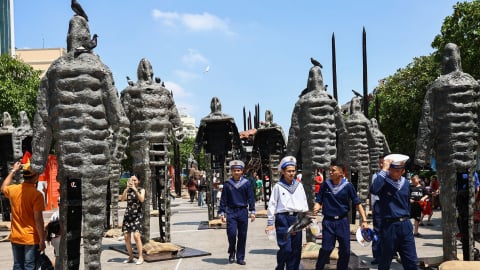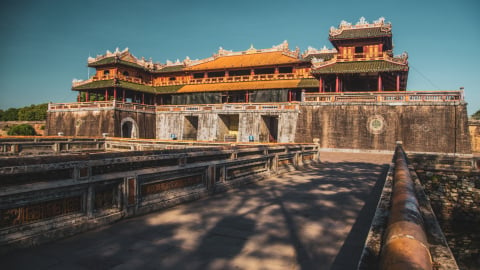Recently, in National Geographic magazine, British culture and travel writer Daniel Stables wrote an impressive article about his exploration of the ancient capital of Hue. Following a local guide, Daniel learned about the history, culture, and especially the unique and refined vegetarian cuisine of this region. For him, Hue is not only an ancient capital but also the "vegetarian food capital of Vietnam," where traditional culinary styles are experiencing a vibrant revival.
The culinary heritage of the royal court and its Buddhist origins.
Daniel Stables shared his experience traveling to the ancient capital of Hue, following a local guide to find out "How Hue became the vegetarian food capital of Vietnam?". Daniel observed: "In Hue, the former capital of Vietnam, traditional culinary styles are undergoing a vibrant revival, transforming this central city into a unique destination for vegetarian cuisine."
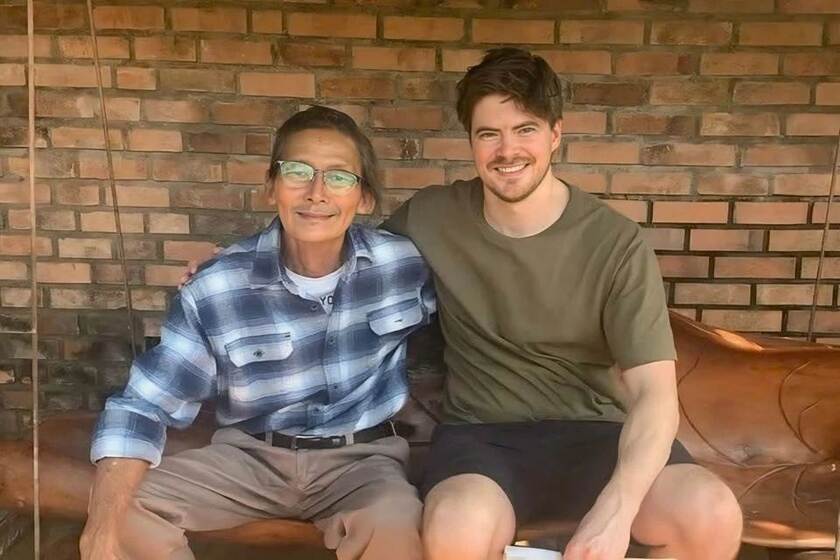
British journalists on a trip to Hue, exploring Vietnam's vegetarian culinary capital in June.
The British journalist was impressed by the details: "The meals of the Nguyen dynasty kings often consisted of 50 different dishes. But it was precisely these extravagance that inspired the creativity of chefs in ancient Hue." According to Daniel Stables, Hue's vegetarian cuisine has deep roots in the Nguyen dynasty. The kings' meals often included up to 50 dishes, and this luxury and sophistication inspired the creativity of the royal chefs.
During the Nguyen Dynasty, devout Buddhists observed vegetarianism on holidays throughout the year. The combination of religion and a penchant for lavish banquets led court chefs to develop one of the most sophisticated vegetarian cuisines in the world. This simultaneously contributed to the unique and refined character of Vietnamese cuisine in general.
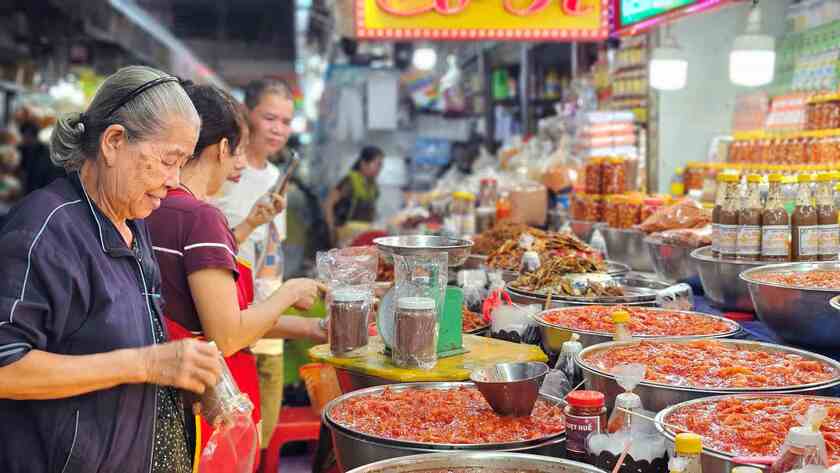
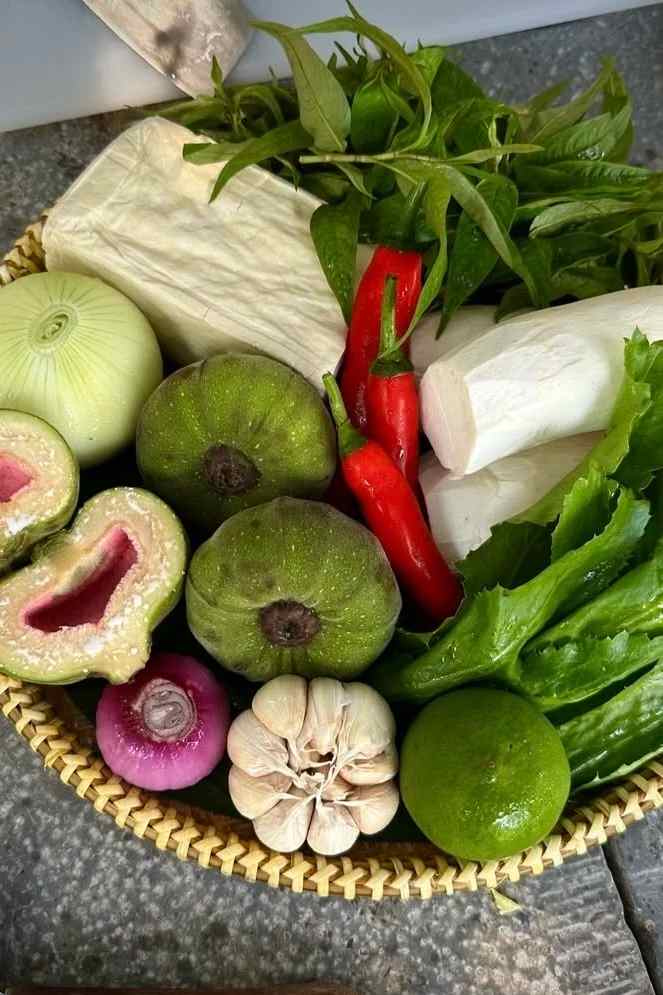
Ingredients for Daniel's vegetarian cooking class.
The sun set, and the golden tiled roofs of the Ngo Mon Gate gleamed brightly. Reporter Daniel and his local guide left the Hue Imperial Citadel, crossed the Perfume River, and joined the bustling traffic in the city center. They strolled through the pedestrian street, admiring the lively night market. Diners crowded around stalls selling food fragrant with lemongrass, peanuts, and basil, the air filled with the clinking of chopsticks and spoons and the slurping sounds of customers eating noodles.
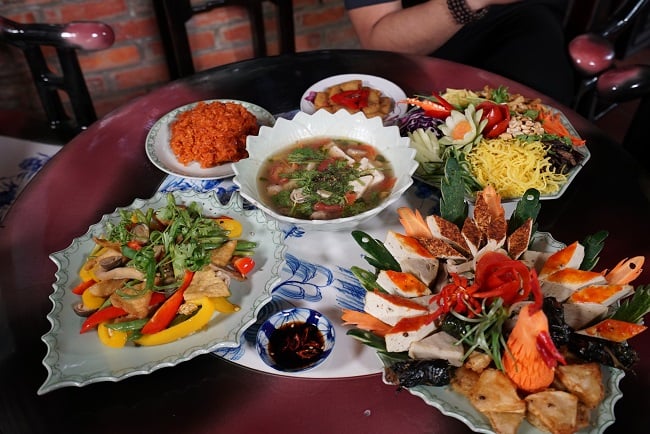
Today, Hue's royal vegetarian culinary heritage is transforming the city into an attractive destination for tourists pursuing a vegan diet.
Daniel arrived in the ancient city of Hue on the first day of the lunar month. Along with the full moon, the first day is a time when people observe a vegetarian diet, and restaurants throughout the city serve traditional vegetarian and vegan dishes. The tour guide ordered Daniel a delicious plate of banh xeo (Vietnamese savory pancake), with a crispy crust and a filling of perilla leaves, mushrooms, and pickled vegetables.
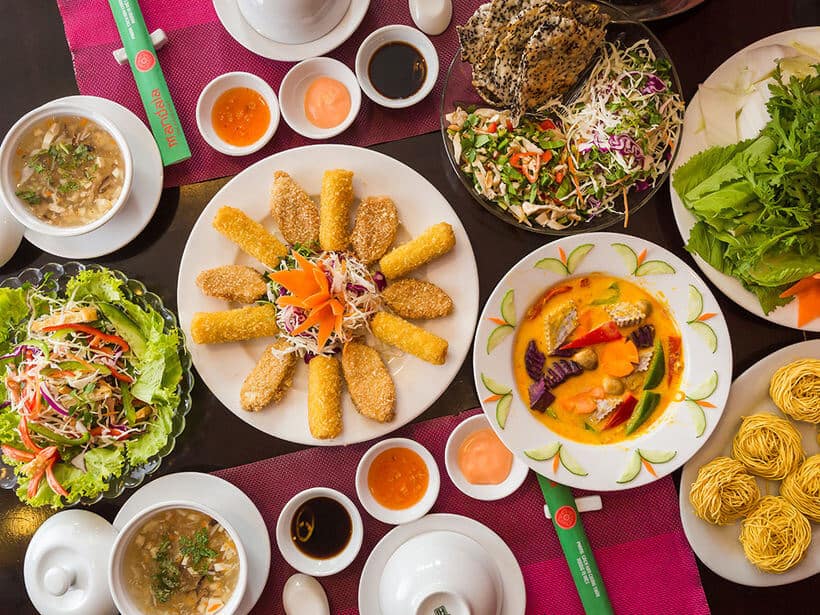
Because they understand the significance of vegetarianism, people in Hue are meticulous in every step of preparing and enjoying vegetarian cuisine.
When Buddhism became the state religion under the Nguyen Dynasty, vegetarianism became associated with many solemn rituals, especially before the Nam Giao sacrificial ceremony. The combination of religion and royal culinary style created an incredibly rich and sophisticated vegetarian cuisine, with approximately 125 unique vegetarian dishes. Today, this heritage has transformed Hue into an attractive destination for tourists pursuing a vegan diet and wanting to learn about a distinctive aspect of Vietnamese culinary culture.
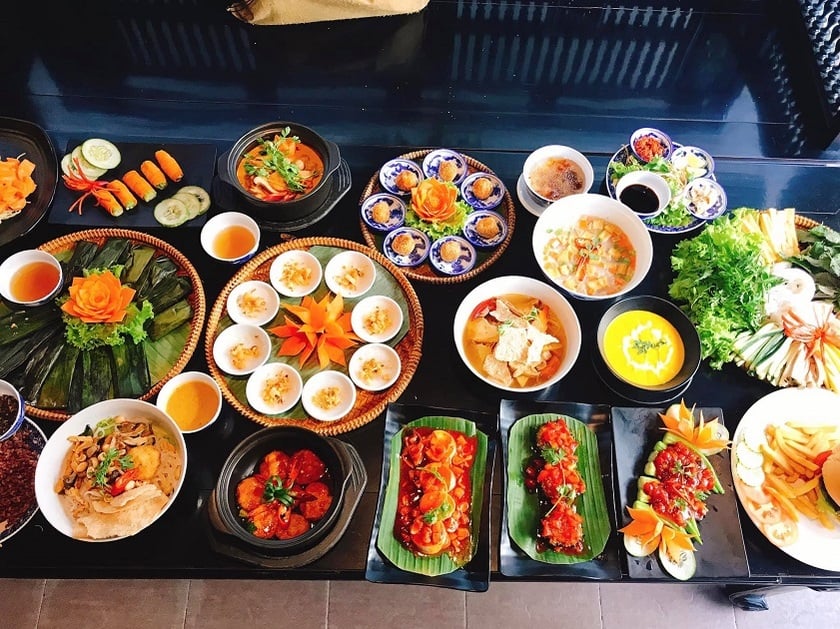
Hue's vegetarian dishes are exquisitely designed and highly aesthetically pleasing.
The art of preparing and enjoying Hue vegetarian dishes.
Statistical data shows that Hue has approximately 108 temples and over 300 Buddhist prayer halls. Many people in Hue follow Buddhism, and the tradition of vegetarianism has existed for a long time, thus vegetarian cuisine has developed into a unique and distinctive culinary culture of the people of the ancient capital. People in Hue, from commoners to the nobility, all have a tradition of eating vegetarian food. Someone once said that in Hue, the mountains are not high, the rivers are not deep, but the hearts of the people are serene and tranquil because they know how to practice self-cultivation and how to eat vegetarian food to purify their souls.
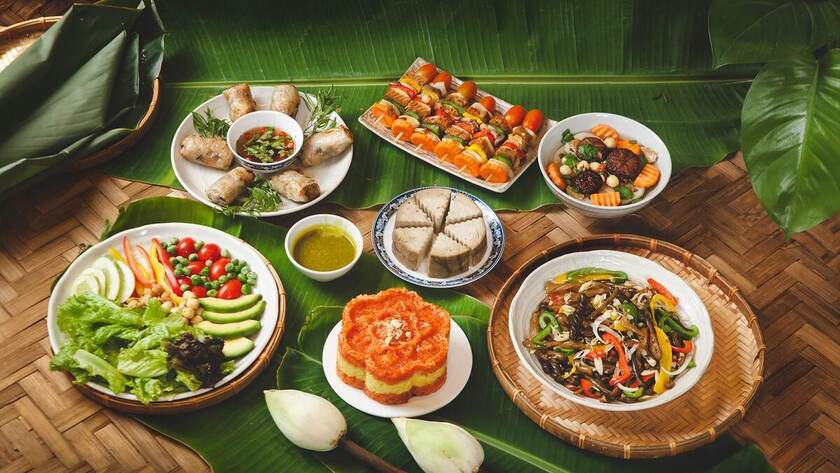
During the Nguyen dynasty, an entire class of nobility practiced vegetarianism, resulting in a rich variety of vegetarian dishes in Hue (approximately 125 different types). These vegetarian dishes were prepared with great care and were just as delicious as their non-vegetarian counterparts.
When talking about vegetarian food in Hue, one must first mention the way vegetarian meals are eaten at the temples in Hue. Monthly, on religious holidays, the temples often prepare vegetarian feasts to treat Buddhists from all over. Although called a feast, the vegetarian dishes in the temples are not elaborate, but simple, consisting of soy sauce, salt, vegetables, and pickles... all made from produce and herbs from the temple gardens, provided by the nuns and devout Buddhists. These simple temple meals always attract many people.
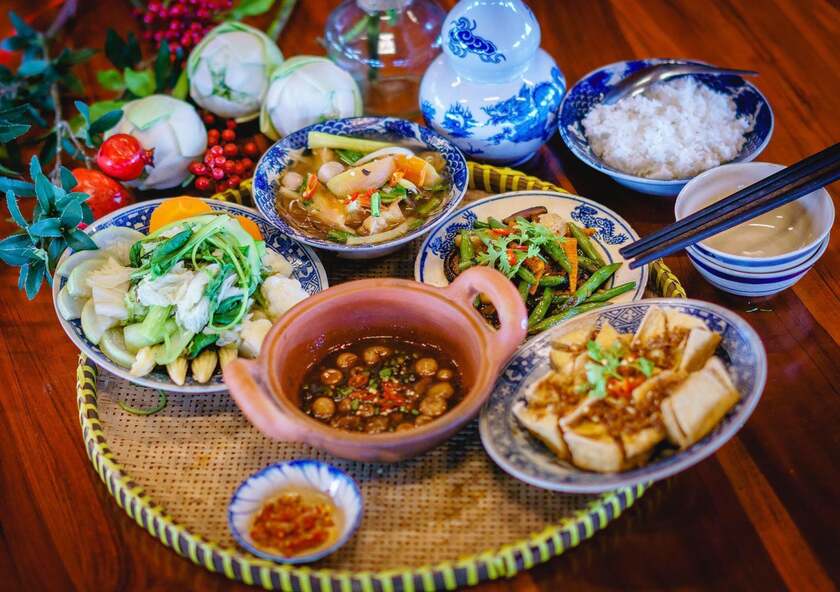
People in Hue don't just eat vegetarian food on the 15th and 1st of the lunar month or on holidays; they eat vegetarian as a daily habit or during family anniversaries.
Hue vegetarian cuisine is not simply about preparing dishes, but a meticulous art form from ingredient selection to presentation. People in Hue, from commoners to aristocrats, have a long tradition of vegetarianism, not only for health reasons but also for profound philosophies about the purity of the soul. They adhere to the principle of "eating what's in season," using natural, readily available ingredients and preparing them with finesse. The seasonings are carefully chosen, "rich" but not harsh, with a harmonious blend of natural flavors and colors from plants. Hue vegetarian dishes also come with a variety of dipping sauces, adding to their diversity and appeal.
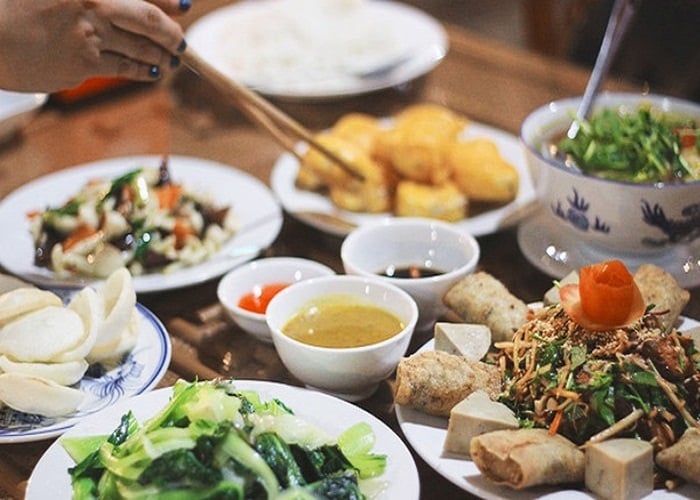
People in Hue don't simply eat vegetarian food for health reasons; for them, vegetarian dishes also hold many profound philosophical meanings.
In terms of spice usage, Hue's vegetarian cuisine also has its own unique characteristics. Over centuries, accumulating the cultural elements of many regions of the country, Hue's cuisine embodies the tastes of all regions: salty, sweet, fatty, savory, sour, bitter, astringent, spicy… Hue people enjoy savoring all flavors, but each flavor is distinct and clear. They eat as if they are alive, experiencing all the joys and sorrows, pleasures and hardships, and sometimes even accepting the challenge of a spiciness that brings tears to their eyes.
According to writer Nguyen Tuan:People in Hue "eat with their eyes" before "eating with their mouths".Hue's vegetarian dishes are not only delicious but also meticulously presented like works of art. From the exquisitely carved vegetables to the harmonious color combinations, everything reflects the talent and skill of the chef. The colors in the dishes are not only aesthetically pleasing but also embody the philosophy of yin and yang and traditional Eastern medicine, helping to balance the five internal organs. This is a unique feature, showcasing the sophistication and deep understanding of Hue's culture and medicine. Each vegetarian dish is a perfect combination of flavor, color, and philosophy, creating an unforgettable culinary experience for visitors.

 VI
VI EN
EN



